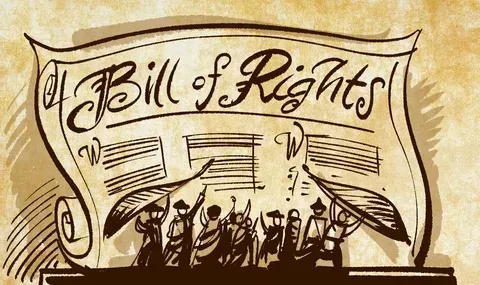Helpful Tips Student Disciplinary Hearing

Being accused of academic misconduct is a terrifying experience. The consequences of an investigation alone could potentially jeopardize all the time, effort, money and sacrifices you have made towards your goal of holding a college degree. Student disciplinary procedures are every day more common, and many students are caught off guard and blindsided by the time when they first learn there is an investigation against them. Whether it was a mistake, a misunderstanding or a lie from someone with an ulterior motive, the truth of the matter is that you need to understand the process in order to defend yourself.
The presence of a student advisor or attorney since the early stages of the investigation tends to make a remarkable the difference in the manner the university conducts the investigation. Under their guidance, advice and support, the student is better prepared to be wary of practices and tactics universities use that may not be in your best interests. However, the student is not always aware that there are people who work on these cases. and when they do, some of them come to us for our advice later in the process. This article is to give you some and tips – in a general sense- of things to pay special attention.
The first principle I want you to remember is that in a student disciplinary proceeding, the University is not going to help you, it’s not going to defend you and they will not conduct the investigation with your best interests in mind. Their investigation and outcome are to protect themselves from any liability or potential lawsuits, so you must to be very careful with what you say and with who you speak. I cannot stress it enough: if you are being investigated for student misconduct, and the investigator tells you that they just want to help you, don’t believe them. They are part of the University, and the school is only interested in protecting themselves from potential legal liability, even if it means at your academic or professional future’s expense. Bear in mind, that the Student Handbook or Student Code of Conduct from your school (which dictates the student misconduct process) is written by the University, enforced by the University and if there is a suspicion of student misconduct, investigated by the university. The hearing will also be before the university’s chosen panel or hearing officer, which will in turn adjudicate responsibility and impose sanctions. Not only that, but if you exercise your right to appeal, it will also be before another individual or panel chosen by the University, or school’s officials such as deans and provosts. Furthermore, school officials are professionals who have many years of training and experience in student affairs, so you will automatically be at a disadvantage. They probably see your type of case many times every day. You’re playing in their court, by their rules, made to protect them. What’s worse: those rules and regulations have been carefully prepared and curated by a team of attorneys that are highly skilled in academic matters and policy. Not only the rules are carefully made by attorneys, but they also have a General Counsel or Legal team at their disposition to consult in a wide array of matters.
I don’t mean to scare you. What I mean to say is they have all the power; they are covered by every angle and you must be prepared to present a strong case.
The student disciplinary process is made up of different stages. Not every student misconduct investigation leads to a disciplinary hearing. It’s also worth noting that every university has different rules and procedures. That being said, I want to elaborate on student disciplinary hearings, because it’s (understandably) one of the main concerns and the more formal stage of the student misconduct adjudication process
- Have a Student Advisor present: My first word of advice, without any doubt, would be to exercise your right to have an advisor present at the hearing. Most universities allow the student to bring a student advisor or support person. The ideal advisor would be an attorney who has experience in student cases, or an attorney that has courtroom experience. The moment an attorney advisor gets involved in a disciplinary proceeding, the tone and process changes and they’re forced to be more thorough, diligent, and careful. Most students don’t even know that there are law firms that work with every stage of the student disciplinary process. Law firms such as the one I work with, Lento Law Group, have entire teams dedicated to Student Disciplinary Defense with plenty of experience both in Student Disciplinary Proceedings and in the courtroom. However, your advisor or support person doesn’t have to be an attorney. It can be a mentor, a parent, even your best friend. It’s helpful to have another set of fresh eyes or perspective to consult if you get confused or cornered by a school official or the hearing officer. Even if the person isn’t an attorney, having someone by your side will make you feel less vulnerable, and you would have a familiar face to be by your side in such stressful time.
- Start building your case as soon as possible: the University will possibly send you a Hearing Notification Letter where they state the day, time, and place of the hearing. The Hearing Notification tends to be sent just a few days before the hearing, so it’s best if you by then have collected the mosr evidence possible to strengthen your case. The Hearing Notification letter will also give even shorter deadlines to announce your witnesses and to notify them with any evidence you intend to present at the hearing.
- Notify the school of your advisor appearance: if a student advisor or support person will be attending the hearing, you must notify the school of that fact, and also provide their names.
- Notify all the evidence and witnesses you intend to use within the time frame given by the school: or you may risk the chance of them objection to the evidence on the grounds it was nor provided to them in a timely manner.
- Read the Hearing Notification very thoroughly: the letter is essentially the school’s entire case against you. It announces the charges against you and how they are going to prove it. That is, it usually includes a list of the witnesses for the University, a summary of their testimony along with all the documents which they will be using against you. You must make sure that they include all the evidence they say they’re providing with the notification.
- Prepare your opening statement: it is not required but I always recommend students to prepare a brief opening statement, so the hearing officials or panels know what your defense is and how you intend to prove it.
- Prepare your witnesses and practice their testimony: don’t “wing it”; remember you are against experienced university officials.
- Once in the hearing, listen very carefully to the witnesses’ testimony against you: so, you can provide rebuttal testimony or cross-examine that witness.
- In cross-examination you should focus on the part of their testimony you are positive is incorrect, inaccurate, or false.
The previous information is not intended to substitute legal advice, it is only for informative purposes. Every case is different, and an education attorney or student advisor is best educated, trained and experienced to provide you with professional advise that will adjust to your particular needs.
More News & Resources











